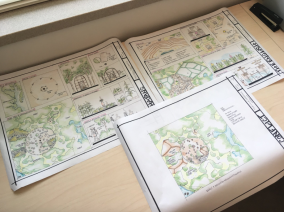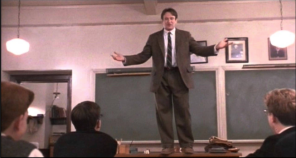 Today is the first day of Native American Heritage Month, and our guest post comes from Jessica Taylor, Assistant Professor of Oral and Public History, and Edward Polanco, Assistant Professor of Latin American History, both at Virginia Tech. A graduate of the College of William and Mary, Taylor is currently working on her first book manuscript, which examines Native landscape in the colonial Chesapeake. Polanco is a graduate of the University of Arizona, and his current book manuscript examines 16th- and 17th-century Nahua healing ritual specialists in Central Mexico. The following are keys to success identified by Taylor and Polanco in their development of a course on Native History at Virginia Tech.
Today is the first day of Native American Heritage Month, and our guest post comes from Jessica Taylor, Assistant Professor of Oral and Public History, and Edward Polanco, Assistant Professor of Latin American History, both at Virginia Tech. A graduate of the College of William and Mary, Taylor is currently working on her first book manuscript, which examines Native landscape in the colonial Chesapeake. Polanco is a graduate of the University of Arizona, and his current book manuscript examines 16th- and 17th-century Nahua healing ritual specialists in Central Mexico. The following are keys to success identified by Taylor and Polanco in their development of a course on Native History at Virginia Tech.
 Working through the first course proposal at a tenure-track job is intimidating, and more so when the topic is as enormous and fraught as “Native History.” To develop this course with care, we sought input and advice on and off campus as the process unfolded. These thoughts originated in a meeting between Virginia Tech’s Native students’ group, Native@VT, the American Indian and Indigenous Community Center on campus, and the Department of History. We wanted to share some of our ideas and strategies as we continue to develop our Native History class and advocate for a more visible Native presence on campus. This has put our Department’s and University’s commitment to diversity into action.
Working through the first course proposal at a tenure-track job is intimidating, and more so when the topic is as enormous and fraught as “Native History.” To develop this course with care, we sought input and advice on and off campus as the process unfolded. These thoughts originated in a meeting between Virginia Tech’s Native students’ group, Native@VT, the American Indian and Indigenous Community Center on campus, and the Department of History. We wanted to share some of our ideas and strategies as we continue to develop our Native History class and advocate for a more visible Native presence on campus. This has put our Department’s and University’s commitment to diversity into action.
 Today I want to make an argument for doing something without knowing and without being able to ever know its full pedagogical value. Let me explain.
Today I want to make an argument for doing something without knowing and without being able to ever know its full pedagogical value. Let me explain.

 With spring well underway, many of us are experiencing the satisfaction of marking the last grade on the final blue book of the semester, with an eye toward the approaching summer months and the freedom to work on our own research projects.
With spring well underway, many of us are experiencing the satisfaction of marking the last grade on the final blue book of the semester, with an eye toward the approaching summer months and the freedom to work on our own research projects.
 As an undergraduate, I didn’t take many large survey classes, and apart from one class, even the surveys that I took were taught by one faculty member. Larger U.S. universities do have more survey classes (I know, because I was a TA for several of them), but most that I taught on were also taught by one person. That model seems to be less usual in the United Kingdom, so I thought I’d talk about monster team-taught classes, the role of convener in bringing (and then holding) these classes together, and what you need to know about them if you’re considering the British job market.
As an undergraduate, I didn’t take many large survey classes, and apart from one class, even the surveys that I took were taught by one faculty member. Larger U.S. universities do have more survey classes (I know, because I was a TA for several of them), but most that I taught on were also taught by one person. That model seems to be less usual in the United Kingdom, so I thought I’d talk about monster team-taught classes, the role of convener in bringing (and then holding) these classes together, and what you need to know about them if you’re considering the British job market.